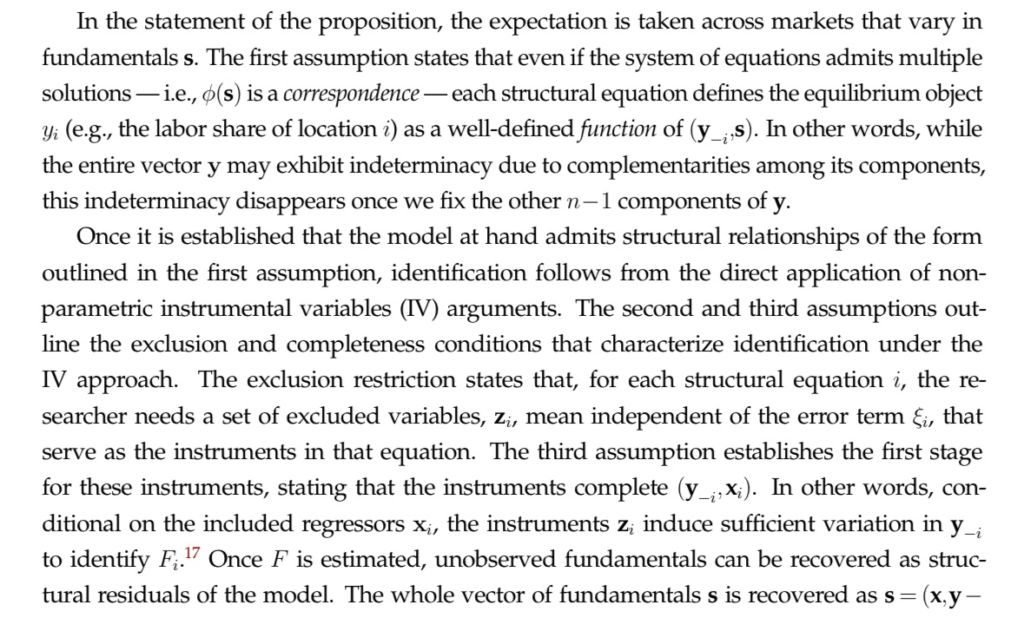Industrial policy can affect outcomes either directly by changing an area’s fundamentals, or by coordinating simultaneous investment. How important is each?

Tishara Garg is studying the effects of industrial parks in India. These are plots of land set aside for industrialization, with substantial government promotion. These are not, to be clear, special economic zones like Shenzhen, but simply local initiatives.

The perennial problem facing people studying IP is that reduced form evidence is meaningless. Yes, it increases local employment. That says nothing about whether that simply redirected — or parasitized — activity that would have simply happened elsewhere.


A program of subsidies, with its attendant deadweight loss from taxes, need not improve welfare. However, we can say with more confidence that coordinating economic activity is beneficial to everyone, if there are investments which are worthwhile only if others also invest. To do this, we need to estimate the possible equilibriums given a set of fundamentals. The first challenge is estimating those fundamentals. What she shows is that, holding the rest of the economy constant, each variable gives us a function.

If this is the case, then we can estimate the fundamentals of every area using a set of instrumental variables.


This is not as complicated as it sounds. We can simply use spillovers from investments in another place to infer the fundamentals of the place we’re studying.

These spillovers are quite local in nature. Thus, so long as there are two assumptions met (no difference in trends, no subsidization of control areas by treated areas) we can use these as instruments.


Second, we need to enumerate all possible equilibriums, and (third) assign them into types. Her contribution are methods from algebraic geometry — she can approximate systems of linear equations as the roots of polynomials, which have well-established methods for solving.

With this in hand, we can finally separate out what is unambiguously good about industrial policies. The formation of industrial parks leads to places changing their equilibriums to higher, better ones.

Tishara Garg, “Can Industrial Policy Overcome Coordination Failures?” (2025)